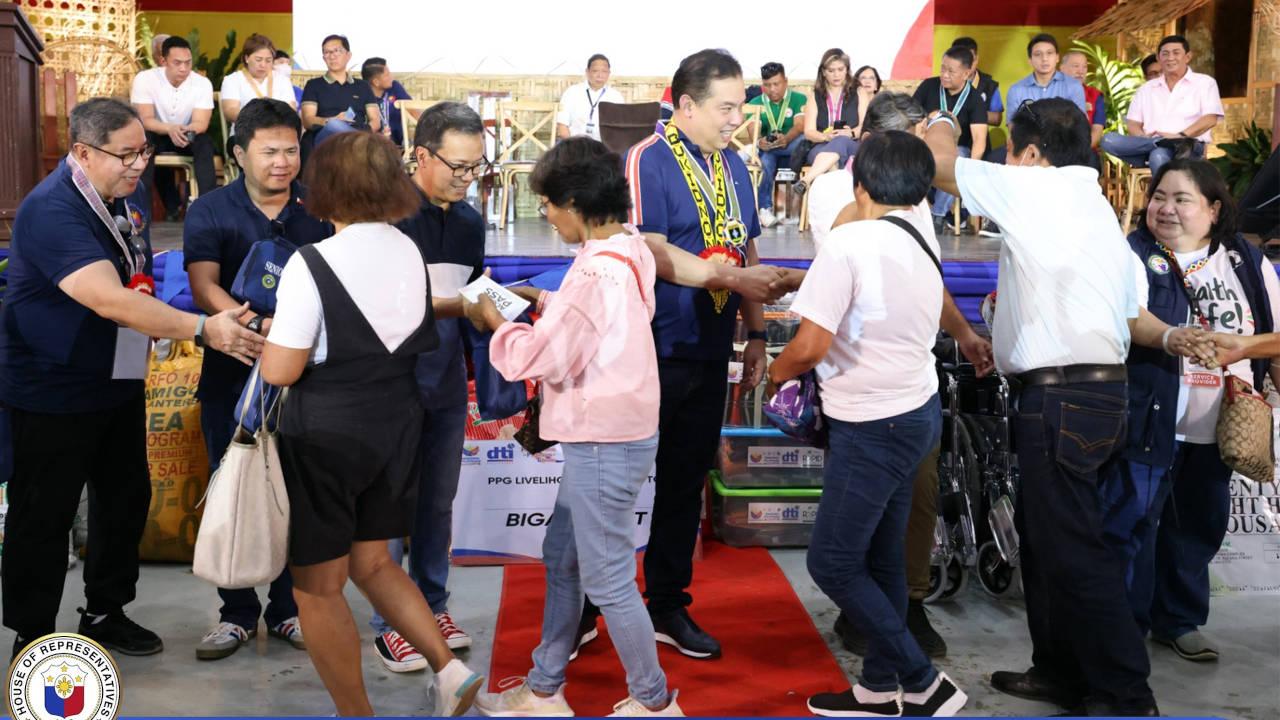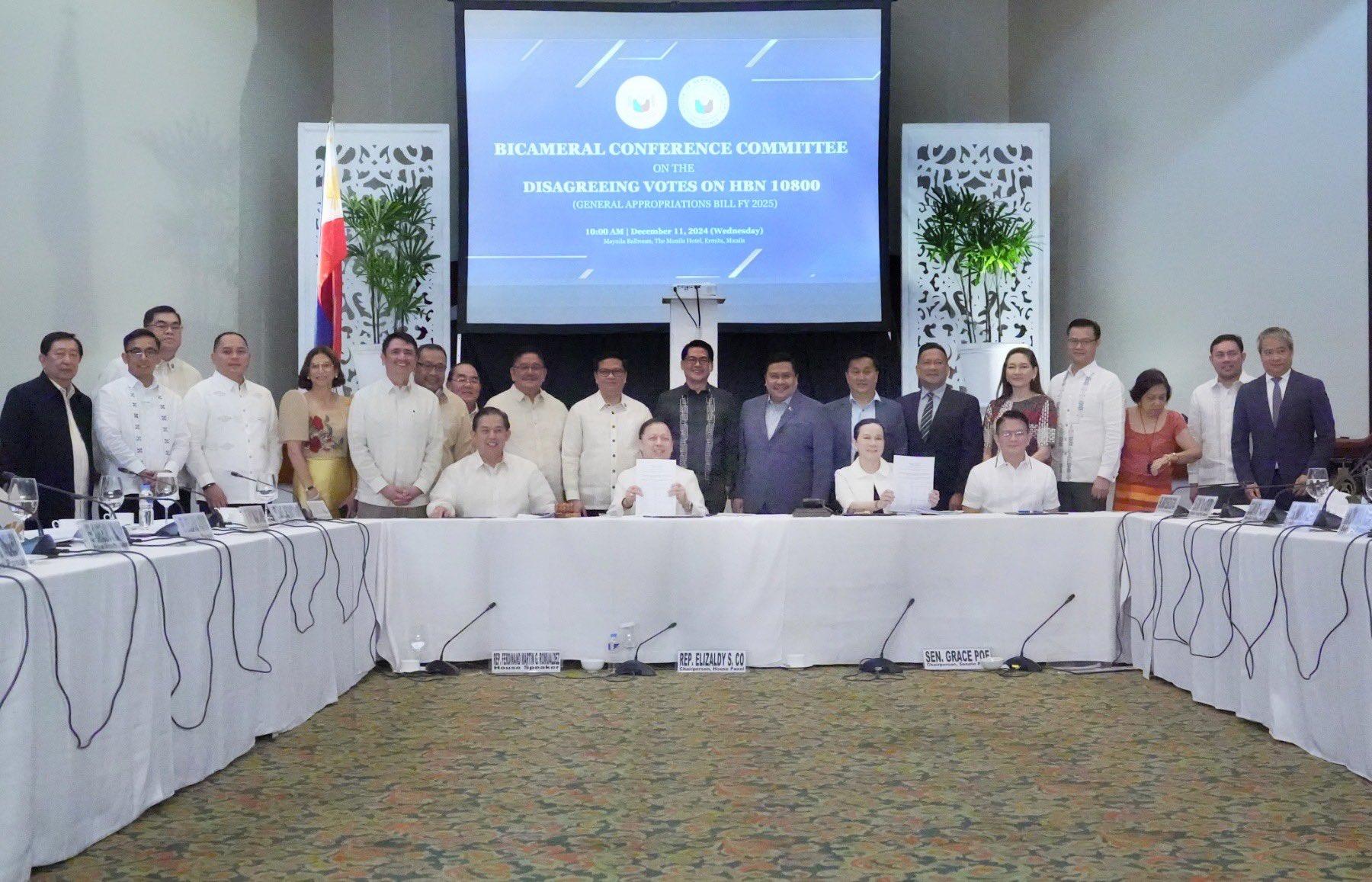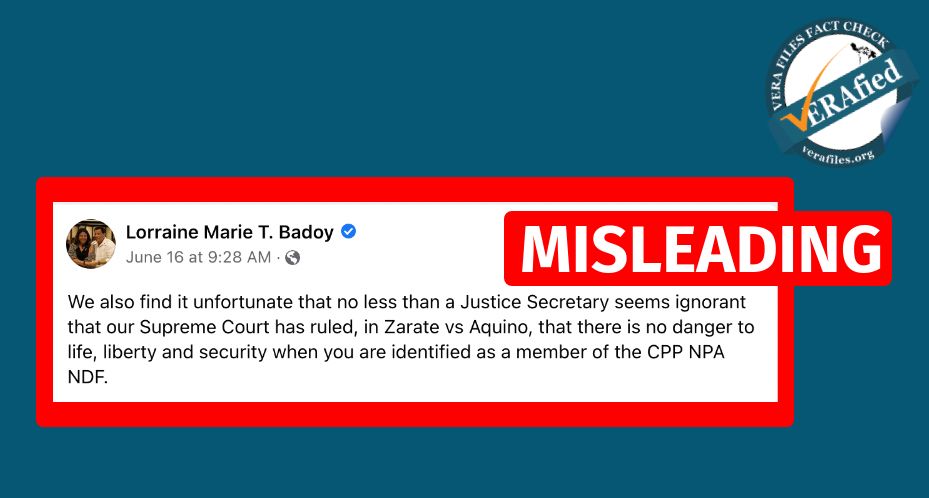Cuts made by Congress in the annual budget program surpassed the P1-trillion mark in the first three years of the Marcos administration. Most of the cuts were from strategic transport, infrastructure and agri-based investments, and shifted to graft-prone projects like flood control, drainage systems and other local projects.
According to former Budget secretary Florencio “Butch” Abad, the unprecedented huge cuts and diversions in the national government spending program not only defied the norm in budget-making but also circumvented the 2013 Supreme Court resolution declaring the Priority Development Assistance Funds (PDAF), or congressional pork barrel, unconstitutional.
In an online public forum, titled “Patronage Politics: The Hidden Hand Behind the 2025 Budget,” organized by civil society group INCITEGov and the Ateneo School of Government on Jan. 13, Abad and UP economics professor JC Punongbayan discussed the unusual features of the 2025 budget, particularly the apparent priority for “ayuda” (aid) over high-impact infrastructure projects and social services.
“The participation of legislators in identifying the beneficiaries and in distributing the cash dole outs of ‘ayuda’ beneficiaries and in issuing guarantee letters to hospitals under the MAIFIP (Medical Assistance for Indigent Patients) recalls the landmark decision of the Supreme Court nullifying as unconstitutional the PDAF pork barrel ‘for the post-enactment, non-oversight intervention of legislators in budget execution,’ the exclusive domain of the executive,” noted Abad, who also served as chairman of the House Committee on Appropriations when he was a congressman.
It was under Abad’s stint at the Department of Budget and Management when the Supreme Court voted 14-0 in the petitions filed by losing senatorial candidates Greco Belgica and Samson Alcantara challenging the discretionary funds’ legality. In the ruling, the Supreme Court declared unconstitutional provisions in the annual General Appropriations Act that allowed legislators to determine the funded projects and beneficiaries, as well as related practices deemed to be an abuse of legislative and executive powers.
That case was prompted by the Commission on Audit’s special report citing gross misuse of the PDAF and other items inserted by lawmakers in the annual budget, particularly in light of the estimated P10-billion funds that came to be known as the PDAF scam allegedly masterminded by businesswoman Janet Lim Napoles.
Civil society groups and nongovernmental organizations are mulling over filing of petitions to the Supreme Court questioning some of the budget cuts and realignments as well as the participation of lawmakers in the implementation phase.
Abad said the cuts made by Congress in the annual budget in the last three years had reached P1.042 trillion, broken down into: P219 billion in the 2013 GAA, P449.5 billion in 2024 and P373 billion in 2025. Less the P26 billion worth of items in the Department of Public Works budget vetoed by Marcos in the 2025 budget, the cuts still breach the P1-trillion mark at P1.015 trillion.
“What is the status of the utilization of more than a trillion pesos of public funds taken from the first three national expenditure programs of the current administration?” asked Abad, one of the founders of INCITEGov.
“It must be emphasized that the massive budget cuts were originally allocated for priority projects that endured a protracted and tedious process of review and approval,” he pointed out, noting that the final shape of the budget program is the “financial expression” of the administration’s development plan for a given year.
He further observed that Congress broke the norm by introducing major changes in Malacañang’s budget proposal and that, curiously, the economic managers were not speaking up on the distortion of their budgetary priorities, until the huge cuts in the education and health budgets. “Congress offered no explanations. Why the cuts? Why the diversion? Why the magnitude?” the former budget chief wondered aloud.
In the 2024 budget, the counterpart funds for foreign-assisted projects were reduced by P242 billion, the budget for flood control ballooned to P245 billion following a P28.9 billion realignment by the bicam. Other budget items worth P174.6 billion were added to the Department of Public Works and Highways (DPWH). This year, the congressional insertions in the DPWH continued, with P94.32 billion, bloating the public works budget to P1.09 trillion.
Abad said this showed the administration’s priorities for flood control and other local projects as well as “ayuda” over the Department of Education’s computerization program, which was reduced by P10 billion.
Aside from the P41.16 billion MAIFIP under the Department of Health, other unconditional “ayuda” lump sums in the budget are P44.75 billion Assistance to Individuals in Crisis Situations (AICS) and P26.16 billion Ayuda sa Kapos ang Kita Program under the Department of Social Welfare and Development, and P18.29 billion Tulong Panghanapbuhay sa Ating Disadvantaged Workers Program (TUPAD) under the Department of Labor and Employment. Add to this the P114 billion conditional cash transfer called Pantawid Pamilyang Pilipino Program (4Ps) and you get a total of P244.35 billion.
Punongbayan said House Speaker Martin Romualdez has four smaller “ayuda” programs under the AICS and TUPAD. These are Start-up Investment Business and Livelihood Program support for small and medium enterprises, Cash Assistance and Rice Distribution as rice consumption subsidies, Integrated Scholarships and Incentives Program for the Youth AICS scholarships for poor but deserving students, and Farmer’s Assistance for Recovery and Modernization for farm improvements.
These are clearly “pork” allocations intended for local improvements to help a politician win popularity with voters. These various forms of “ayuda” are distributed largely by politicians, not by the implementing agencies. The pay-out events resemble those of political campaign rallies, and many politicians talk as if the assistance came out of their own pockets.
Punongbayan emphasized that “there’s nothing wrong with ‘ayuda’ per se, and it’s often necessary,” citing the 4Ps and the emergency assistance during the pandemic, but it has become a concern after it “ballooned exponentially during the pandemic, and now in the run-up to the 2025 elections.”
The problems with “ayuda,” he said, is that it is not evidence-based, it perpetuates the cycle of poverty, targeting is deeply flawed, and it is abused for political patronage, making it essentially legalized vote-buying.
To break the cycle of poverty, Punongbayan suggested that the government better rely on conditional cash transfers such as the 4Ps and make sure it is properly budgeted each year, empowers poorer households such as tying macro-finance loans to business ventures or educational investments, manages inflation better and avoids politicking “ayuda” in the run-up to elections.
But will lawmakers agree to allocate funding for programs but won’t have their names and faces attached to those?
The views in this column are those of the author and do not necessarily reflect the views of VERA Files.
This column also appeared in The Manila Times.




